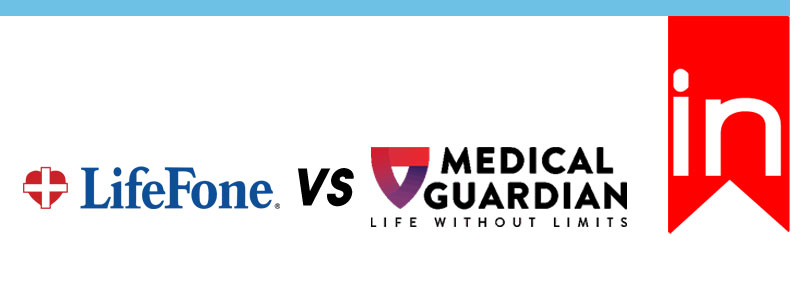Lifefone vs Medical Guardian
LifeFone and Medical Guardian both have high praise for their products, prices, and services found in many consumer reviews everywhere, making these seem extremely suitable and trustworthy for your loved ones. The question is, which company is best for you? Since both have many similarities and only a few differences, either could work, but the differences could be the deal-breakers for you.Other Vs Head to Heads you might be interested in:
LifeFone Medical Alert
LifeFone Medical Alert is most well-known for its great online tools available for consumers as well as the products and prices. Below are the in-depth descriptions of the products from LifeFone Medical Alert.

Medical Guardian
Medical Guardian is ranked number one in the country compared to all other medical alert systems on the market. The products are astounding and extremely effective, making them the first option for most seniors and their loved ones. Below are the descriptions of the products from the Medical Guardian.
Products/Prices
LIFEFONE
At-Home Landline
This plan is an at-home landline system that comes with an emergency button either worn on the wrist or on a pendant around the neck, a base station that the button will send a signal to when pushed, and automatic fall detection is included if the customer decides to pay extra. The button and base unit can be as far away as 1,300 feet and still get a signal through, therefore ensuring that the client will have total protection around the house. The system itself has a 32-hour battery life and will need to be charged almost every day. If a monthly payment plan is chosen, (can pick annually, quarterly, and monthly) then the system will cost $24.95 per month without fall detection included (which is $5 per month). There are no activation or equipment fees with any plans.
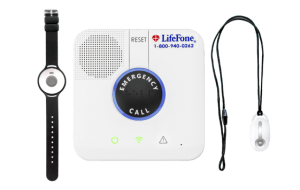
MEDICAL GUARDIAN
Classic Guardian
This plan is an in-home system that connects to a landline, it comes with a base station and a waterproof emergency button either on a wristband or pendant. The button can be pushed from a maximum of 1,300 feet away from the base station, ensuring full protection around the household. With a monthly payment of only $29.95, you can get this plan, plus, there are no equipment or activation fees.
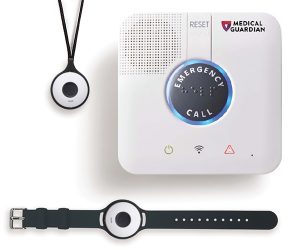
LIFEFONE At-Home Cellular
This plan is an at-home cellular system that comes with the same features and aspects as the landline version, accept this connection is with a cellular device and not a landline. This plan does bring up the monthly payment price to $30.95 per month without fall detection included (which is $6 per month), and there are still no equipment or activation fees as mentioned above.
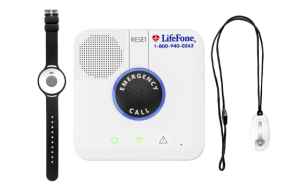
MEDICAL GUARDIAN Home Guardian
This plan is almost the same as the Classic Guardian, but there are a few differences. This plan doesn’t have to be connected to a landline, it only has a range of 600 feet where the button can be pushed within the base station, and this plan has automatic fall detection capabilities for an extra fee of $10 per month. Without fall detection, the plan is $34.95 per month with no equipment or activation fees.

LIFEFONE At-Home & On-The-Go GPS
This plan is an at-home and an on-the-go system, but it comes with a lot of equipment. Comes with an emergency button either worn around the neck or wrist, a GPS device that must be carried everywhere, and the normal at-home base station. The plan may also come with an extra fall detection pendant if it is purchased. At home, the emergency button still has a maximum distance away from the base unit of 1,300 feet while the GPS system obviously has no limit. The GPS system only has a battery life of 30 hours, so it must be charged daily. The monthly payment price for this system is $36.95 per month without fall detection included (which is $10 per month).
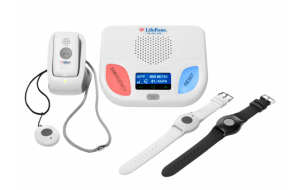
MEDICAL GUARDIAN Mobile Guardian
This on-the-go plan comes with a GPS-enabled mobile device and a waterproof pendant or wristband emergency button option. The mobile unit has a speaker for two-way communication to speak to a trained emergency responder at a monitoring center, but for this to function, the emergency button must be pushed within 350 feet of the mobile device, so always keep it on you. With a monthly payment of $49.95 per month and no equipment or activation fees, clients can get this plan.
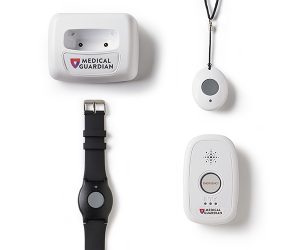
LIFEFONE At-Home & On-The-Go GPS with Voice in Necklace
This system is can be used at home and anywhere else you may go. This system is all in one device where the emergency button is on the pendant and when it is pushed, you have access to two-way communication with a trained emergency responder 24/7. The pendant has GPS tracking built-in, and the device has a 30-day long battery life, so it only has to be charged once a month. With the monthly payment price, this plan is only $39.95 per month without the fall detection included (which is $5 per month).
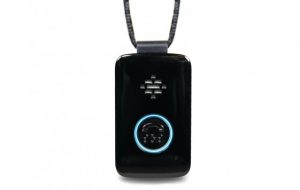
MEDICAL GUARDIAN Active Guardian
Similar to the Mobile Guardian, this system also has WiFi capabilities to help pinpoint your location along with the already enabled GPS tracking. This package comes with a single mobile unit that can only be worn on a pendant (waterproof), and also has optional fall detection if desired for an extra $10 per month. Without fall detection, consumers can get this system for $44.95 per month and no equipment or activation fees.
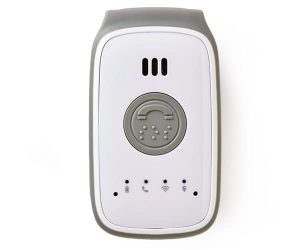
More
LIFEFONE Website
This feature of LifeFone Medical Alert isn’t necessarily a product, but it has many helpful online tools available to customers. Clients just have to create an Emergency Care Profile on their website, and can get answers to questions, and even find steps to set up their medical alert systems provided by LifeFone. This is free for all clients.
MEDICAL GUARDIAN Freedom Guardian
This plan is another on-the-go GPS that is all built into a single smartwatch. To call for help, simply press a button on the side and speak to an emergency responder (via two-way communication). The watch can also do tasks such as calendar alerts and other reminders for the wearer of the watch. (with an extra fee of $5 per month) The cost of this plan is a bit more expensive compared to the others since there’s an initial equipment fee of $99 for the watch and then it’s $44.95 per month afterward. (still no activation fees
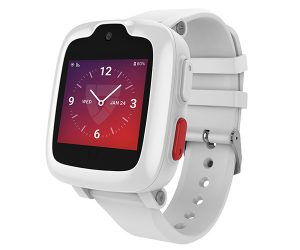
Main Differences & Final Thoughts
The main features that made LifeFone and Medical Guardian different from each other include: Medical Guardian has no main website dedicated to customers who’ve already purchased a package/plan from them, (LifeFone does) unlike LifeFone, Medical Guardian only has one monthly payment method, Medical Guardian is overall more expensive, and finally, LifeFone has no smartwatch option like Medical Guardian. These differences can be seen as either negative or positive depending on how someone looks at them, but in the end, it’s those differences that make these companies unique from one another. Nevertheless, either company could work for you or your loved one unless the differences listed above make you lean towards one company or the other. Whatever works for your life is what matters most.
Related Posts

Medical Alert Bracelet For Breast Cancer Patients: Essential Information for Emergencies
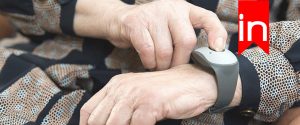
Medical Alert Watch With No Monthly Fee

Why Seniors Living At Home Need a Medical Alert System

Activities of Daily Living: A Comprehensive Guide to Maintaining Independence
Sponge Bath: Bed Bathing Seniors


LifeCall is an American company with a long history of providing excellent monitoring services and efficient emergency alert systems to health care facilities catering to the elderly and individuals for use both indoors and on the go all over the United States.
Call Now
1 (866) 225-1295
Read The Review

